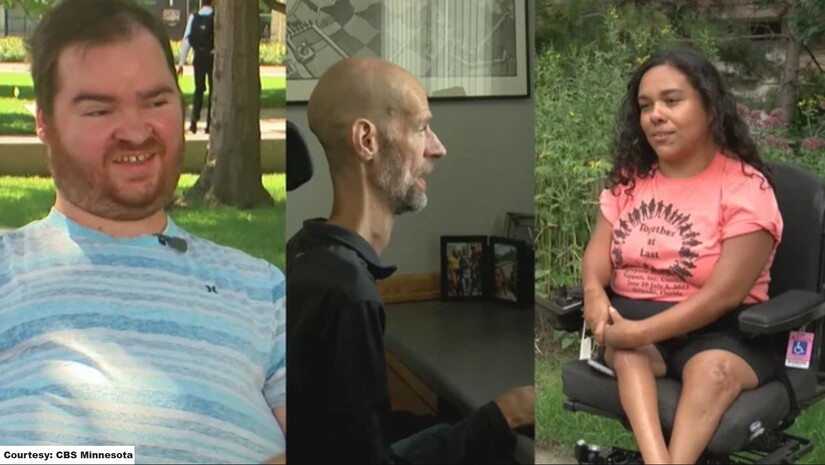Image


ST. PAUL, Minn. — A sweeping fraud investigation by the Minnesota Department of Human Services (DHS) has left nearly 100 adults with disabilities at risk of losing their homes and critical daily support, after state payments to several disability-service providers were suspended.

The affected residents rely on the state’s Integrated Community Supports (ICS) program, a Medicaid waiver service that allows adults with disabilities to live independently in provider-managed apartments while receiving support for daily living, medication management, and community engagement.
Among those impacted is Steven, 36, who asked to use only his first name. A Metro Care Human Services client, Steven lives on disability benefits in North St. Paul.
“I’m very nervous about it. It’s keeping me up at night,” Steven said. “I’ve got to find a place in 60 days, and it’s just really stressful — and I didn’t do anything wrong.”
Steven recently received two letters: one from DHS notifying him that Metro Care had terminated his services, and another from his landlord giving him 60 days to move out.
“There’s no transitional plan,” Steven said. “No explanation as to what happens next. I’m really frustrated by the situation.”
DHS launched the payment suspensions after its Office of Inspector General found “credible allegations of fraud” — specifically, claims that some providers billed for services not delivered.
The state first suspended payments to 11 ICS providers in September 2025. The action has since expanded to 17 affiliated providers, with five more slated for payment withholds on December 2. In total, the payment holds affect 50 active claims, potentially impacting up to 97 residents living in provider-managed apartments.
DHS has said the payment freezes are confidential and necessary to protect public funds.
“Payment withholds are part of ongoing investigations, which are confidential under state law,” a DHS spokesperson said. “We are taking aggressive action based on credible allegations of fraud, tips from the community, and data analysis.”

For providers like Metro Care, the suspension is financially destabilizing. Attorney David Holt said the decision threatens clients’ housing and well-being.
“The payment hold is causing substantial instability for our clients, who are now at severe risk of requiring hospitalization,” Holt said.
Metro Care is appealing the DHS decision, arguing the agency has provided no clear evidence for the withhold.
Clients say they feel caught in the middle. Metro Care tenants praised the program for providing meals, medication support, and community activities — yet now face uncertainty over basic needs.
Michelle Marshall, another resident, said she might need to move in with family.
“We want to know what’s going on. Because we don’t want to be homeless… we don’t.”
DHS said it has contacted counties to alert case managers and help residents transition where possible, but many tenants report a lack of actionable plans.
“I just wish maybe they would have a plan instead of just stopping payment on everything and potentially cutting us loose,” Steven said.
The ICS program is designed to provide independence while ensuring supportive services, bridging the gap between group homes and full independence. However, the program’s billing model — providers manage apartments and submit claims for support services — has made it vulnerable to abuse.
This crackdown comes amid several high-profile fraud cases in Minnesota, including the Feeding Our Future scandal, which prompted public demand for stricter oversight. State officials have launched audits and introduced anti-fraud legislation targeting Medicaid-funded programs.
Advocates warn that while fraud prevention is critical, sudden payment suspensions risk harming the very residents the programs are meant to protect.
“Pausing payments to legitimate providers for up to 90 days is not an accountability measure — it’s an existential threat to the care infrastructure that keeps Minnesotans with disabilities safe, housed, and supported,” said the Association of Residential Resources in Minnesota (ARRM).
As DHS pursues stricter oversight, residents like Steven and Michelle are left facing the immediate reality of lost housing and support — a stark reminder of the human cost behind the state’s effort to curb fraud.